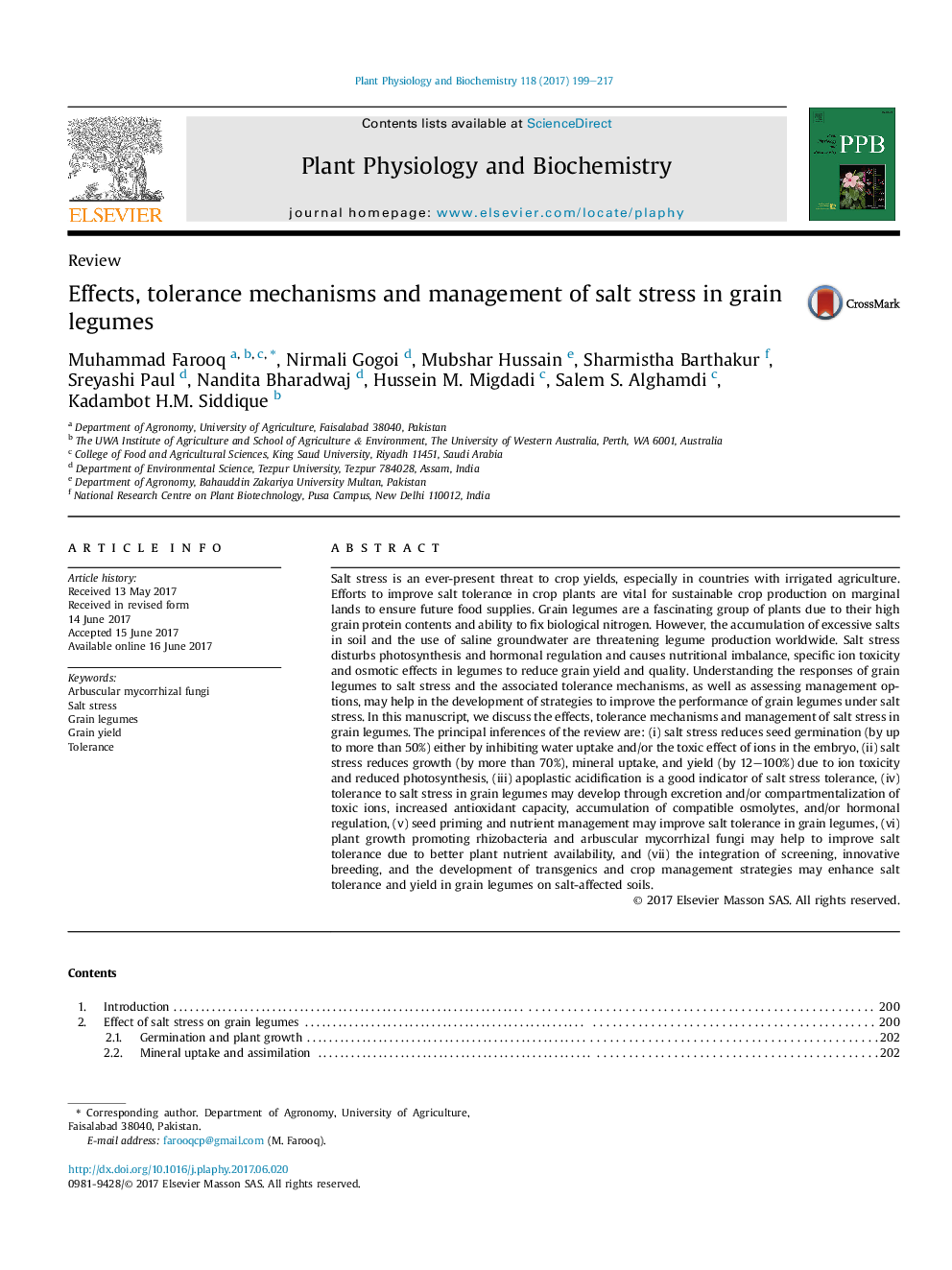| کد مقاله | کد نشریه | سال انتشار | مقاله انگلیسی | نسخه تمام متن |
|---|---|---|---|---|
| 5515436 | 1541903 | 2017 | 19 صفحه PDF | دانلود رایگان |
- Salt stress reduces seed germination by inhibiting water uptake and toxic effect of ions in embryo.
- Salt stress reduces growth, mineral uptake and yield due to ion toxicity and reduced photosynthesis.
- Seed priming and nutrient management may improve salt tolerance in grain legumes.
- Arbuscular mycorrhizal fungi improve salt tolerance due to better plant nutrient availability.
- Integration of breeding and crop management strategies may enhance salt tolerance in grain legumes.
Salt stress is an ever-present threat to crop yields, especially in countries with irrigated agriculture. Efforts to improve salt tolerance in crop plants are vital for sustainable crop production on marginal lands to ensure future food supplies. Grain legumes are a fascinating group of plants due to their high grain protein contents and ability to fix biological nitrogen. However, the accumulation of excessive salts in soil and the use of saline groundwater are threatening legume production worldwide. Salt stress disturbs photosynthesis and hormonal regulation and causes nutritional imbalance, specific ion toxicity and osmotic effects in legumes to reduce grain yield and quality. Understanding the responses of grain legumes to salt stress and the associated tolerance mechanisms, as well as assessing management options, may help in the development of strategies to improve the performance of grain legumes under salt stress. In this manuscript, we discuss the effects, tolerance mechanisms and management of salt stress in grain legumes. The principal inferences of the review are: (i) salt stress reduces seed germination (by up to more than 50%) either by inhibiting water uptake and/or the toxic effect of ions in the embryo, (ii) salt stress reduces growth (by more than 70%), mineral uptake, and yield (by 12-100%) due to ion toxicity and reduced photosynthesis, (iii) apoplastic acidification is a good indicator of salt stress tolerance, (iv) tolerance to salt stress in grain legumes may develop through excretion and/or compartmentalization of toxic ions, increased antioxidant capacity, accumulation of compatible osmolytes, and/or hormonal regulation, (v) seed priming and nutrient management may improve salt tolerance in grain legumes, (vi) plant growth promoting rhizobacteria and arbuscular mycorrhizal fungi may help to improve salt tolerance due to better plant nutrient availability, and (vii) the integration of screening, innovative breeding, and the development of transgenics and crop management strategies may enhance salt tolerance and yield in grain legumes on salt-affected soils.
Journal: Plant Physiology and Biochemistry - Volume 118, September 2017, Pages 199-217
